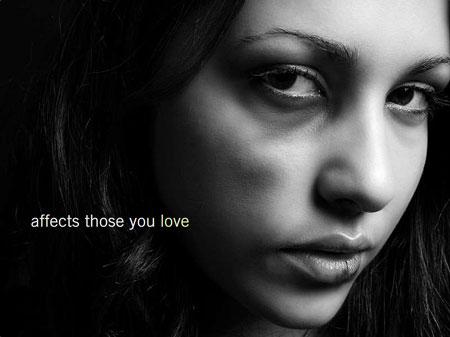Domestic Violence Act fails to protect many people

In the first part of this two part mini-series on domestic abuse in Ireland we looked at the reality of domestic abuse and the scale of the problem in Ireland. In this final part, we will look at what might be done to help support the victims of such abuse. By Justin Frewen.
Over 200,000 Irish women live in fear of being abused by their current or ex-husbands, partners or boyfriends. The shocking truth is that women run a greater risk of being abused by someone they know than from any stranger.
According to the National Crime Council 2005 report – Domestic Abuse of Women and Men - roughly two-thirds of abuse cases start before the relationship is two years old. Alcohol played a role in about 75% of the cases, but was a constant feature only 25% of the time. Although frequently an important element in triggering episodes of violence and their severity, research has shown alcohol plays more of a `facilitative´ role than a determinant one.
Many domestic abuse victims find it impossible to remain in full employment. According to the 2005 National Crime Council report, approximately one in eight of those seriously abused were forced to leave their job completely while 40% took at least some time off work.
A significant number of pregnant women are beaten and raped by their partners every year in Ireland. Sometimes the abuse can result in the victims miscarrying. This abuse often continues after birth. Many women are prohibited from breastfeeding, while others were raped following their child´s birth or beaten as they cradled their baby.
Importance of Effective Legislation
Responsive legislation and an accessible justice system are essential to tackle domestic abuse. However, current legislation in Ireland fails to provide adequate protection or remedies for abused partners.
The Domestic Violence Act does not allow an abused partner obtain a safety order if in the previous 12 months they lived with their partner for less than six months. This means a woman who was in a relationship with her partner for years but only moved in with him a few months previously would not be able to get a barring or safety order. Furthermore, a woman who is being abused by the father of their child is unable to take out a barring order if she is not living with him. This would hold, even if the abuse started before they separated. Many women in Ireland therefore find themselves unprotected by the law.
There is clearly an urgent need for the current legislation to be amended to ensure no perpetrator of abuse is able to get off on a technicality and that no victim of abuse is left without a recourse to the law.
The moment of separation from a violent partner can be the most dangerous time of all. The more severe the abuse, the greater the risk of violence to the abused partner when they try to quit the perpetrator. It is essential women get special protection at this time.
Indeed, engagement with the legal system can place women at heightened risk. Safety and Protection Orders, even where granted, may mean the woman continues to live with her abuser. Should her application be unsuccessful, the woman may be placed at increased risk. Even when an order is granted, a woman’s safety can be compromised as the abuser can be incensed by what she has done or may simply disregard the law.
Women´s Aid
Given the prevalence of domestic abuse, support agencies play a crucial role. One such organisation is Women´s Aid, which was founded over 35 years ago and provides a range of free support services for abused women.
Women´s Aid runs a National Freephone Helpline, which provides a confidential and anonymous support service to abused women. Callers receive support and guidance as well as potential access to Women´s Aid services, other support groups and refuge nationwide. The Helpline is free to all callers within the Republic of Ireland and operates every day of the year from 10am to 10pm, except Christmas Day. The Helpline plays a crucial role in enabling women to speak about their abuse and helping them better understand their situation.
In 2009, Women´s Aid responded to over 10,000 Helpline calls. The callers came from all socio-economic backgrounds and from across the whole of Ireland. However, they all shared one thing in common. Many of the callers were struggling to survive as best they could, while also attempting to protect their children from the abuse to which they were being subjected.
Women´s Aid offers one-to-one meetings at six locations in Dublin and other safe meeting places throughout Ireland. These meetings allow abused women discuss their experiences and learn about the available legal options. Women's Aid also provides a Court Accompaniment Service which provides advocacy and support to women accessing legal options. This service is provided by family legal system experts.
We all must play a role in demanding an end to domestic abuse. One opportunity for this is the annual International 16 Days Campaign. Starting in late November, Women´s Aid and a wide range of community and political pressure groups, rape crisis centres, domestic violence support services and other individuals in Ireland highlight the issue of domestic abuse in Ireland through the 16 Days Campaign.
For further information on the realities of domestic abuse of women in Ireland, please visit www.womensaid.ie for further information.
